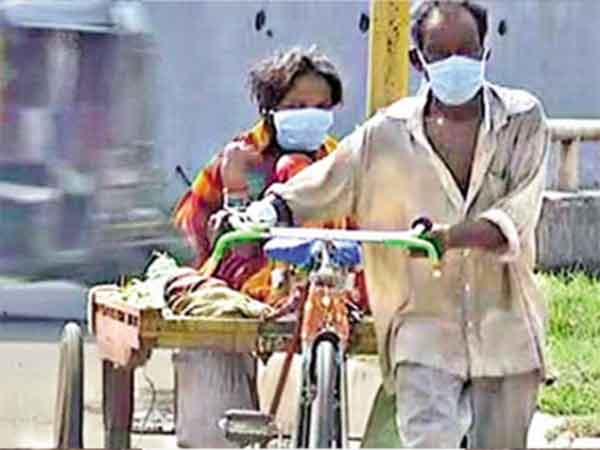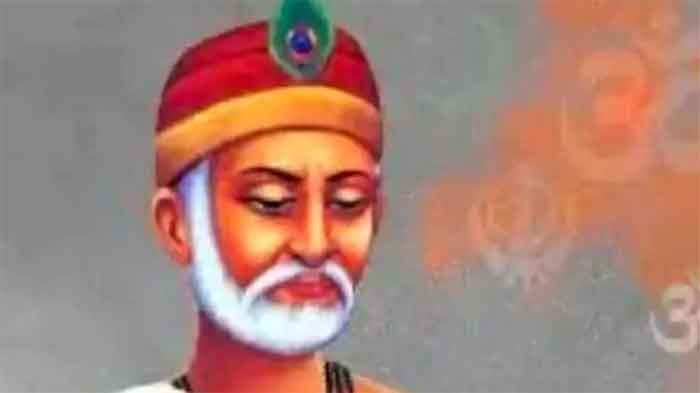
After Dana Majhi in 2016, an Adivasi of Kalahandi who travelled for 10 km with dead body of his wife on shoulder, this time it is Kabir Bhoi, a land less Dalit Labour of Satyabadi block of Puri district, is in news for similar miserable plight. He carried his ailing wife on a Trolley for 90 km. from Sakhigopal to Cuttack because he had no money to pay for Auto rickshaw and also Govt. ambulance was not available for him. But in spite of his extreme hardship, unfortunately he lost his wife Sukanti Bhoi under treatment at SCB medical college hospital. His daring act to save his wife against enormous social apathy puts question to our civilized society around condition of civic life of poor and marginalized during this pandemic. The women, children and elderly of poor populations are the worst sufferer in an insensible health governance system of the state that lacks equity in access to public opportunities.
In this context the issues are many fold which includes access to the available treatment facilities at CHC and medical college and hospital, and transport facilities for patients such as ambulance, dedicated services of 102, and the unrestrained fare of available private transport during pandemic. Why the poor were not getting vehicle for such emergencies? Why such distress condition that forced poor people to take such drastic steps are the questions to think about. In spite of populist schemes by Govt. for poor, SCs and STs, a vast majority of them continue to be in a pitiable condition without basic minimum for life. Kabir Bhoi of Puri and Dana Majhi of Kalahandi are symbolic representatives of our collective failure to transform our society into an egalitarian social order. The scope of access to available equal opportunities in public health sector still a day dream for a majority of masses in the state. The vertical and horizontal inequality in all spear based on regions and social groups continue unabated. There has been no effort to build sufficient public health infrastructure to make it universally accessible rather privatization policy has been injected in health sector to make heath care marketable for profit without human concern. In a multiple forms of unequal society like ours the public services provided by Govt. are also inequitably available to its members and when it comes to the lowest person in the socio-eco ladder it is obviously going to be deprived him so unless the inequality approach to our health service delivery system is not being changed the poor will never get justice. Especially in a backward state such as Odisha with huge poor population the universal access to quality health facilities can only be ensured with state investment but unfortunately the state allocation has been minimal to address pressing heath issues. Health is not just about treatment but also includes related logistic facilities for patients and above all public accountability of health system.
Coming to the status of the victim, this writer has many times visited number Dalit hamlets in Satyabadi block and witnessed their miserable condition specially their vulnerability to access homestead land and basic amenities. Hundreds of Kabir Bhoi of satyabadi live inside coconuts groves without a homestead land for a house site and continue to live without facilities of basic amenities for a dignified living. Practices of untouchability and social discrimination is rampant in these areas which has denied them a socially dignified living. Mostly many of the fellow inhabitants are share croppers and engaged as daily wage earners to meet their bare daily need. They have been facing the brunt of natural calamities routinely every year, whether it FANI, Flood or cyclone, they are worst sufferers but just meagre receiver of relief and rehabilitation package of Govt. yet without a sustainable solution to their abject poverty. The lack of basic amenities such as safe drinking water, toilet and electricity, housing and other sanitary facilities along with lack of adequate nutritious food and rest are some of the measure reason of their continued under development and poor health condition. Poverty and social discrimination in rural villages pushed many of youths from Dalit communities towards distress migration as an option in search of livelihood. Added to economic misery the main issues of their inherent backwardness is their caste based social identity which has been prevented them to all kinds of social access to public privileges in society enjoyed by others. They have been living a socially restricted segregated ghettoized life within their caste centered social circle of fellow poor neighbors. As majority of them are poor and illiterate thus lack social capital and intangible assets. The social power, position and privileges are selectively used by dominant castes in a caste based society like ours. Usually this may possibly not happen in a civilized society having minimum respect for human dignity. These structural unresolved issues are never been visible focused by leaders of political parties and other civil society bodies but casually raised to blame each other. The political leadership in the hegemonic control of upper caste have showed a blind eye towards their cause of human concern even if they routinely voted for the ruling parties of the state.
Largely experience shows the behavior of majority of our Govt. doctors, medical staff, health workers and paramedical staff towards poor remain adamant without human concern and they may perhaps forget that they are paid out of peoples fund to serve the public without discrimination based on socio-eco conditions of the patient. There were evidence of caste based discrimination by service providers in these areas but no action has been initiated either by local elites or Govt.
For last 70 years of constitutional rule by different parties in the state have substantially done nothing to solve the basic issues of the historical poor people specially the downtrodden and socially sidelined sections. The plight of Kabir Bhoi and Dana Majhi are symbolic manifestation of their continued deprivation in many ways in all respect including heath care facilities provided by the state. The marginalized communities must come together to help each other in crisis to avoid distress of fellow human being and make demand for their human rights as citizens of this Land and work towards building a dignified human society.
Manas Jena is Social Activist and writer based in Bhubaneswar. ([email protected])
SIGN UP FOR COUNTERCURRENTS DAILY NEWSLETTER












































